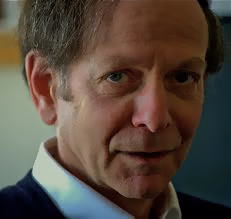Daydream
If I could play the piano and speak Italian
I don’t think I’d do anything else, not
if I had Bill Evans’ hands and Mastroianni’s voice.
If I could play the piano and speak Italian
I’d be murderously cool, set the fashion
in clothes and jazz. I’d always be in, never out.
If I could play the piano and speak Italian
I’d be desired by women, envied by men.
I’d play “Quiet Now” and sigh Sono un po ‘triste.
If I could play the piano and speak Italian
I’d have a blissful night-life, steeped in art—
two sets at Birdland, jamming at the Blue Note.
I wouldn’t play just jazz but Busoni and
Scarlatti too, names I’d pronounce elegantly
if I could play the piano and speak Italian.
If I could play the piano and speak Italian
I’d give charming interviews, stylishly
laced with Florentine proverbs and Roman jests.
If I could play the piano and speak Italian
I wouldn’t be a celebrity; I’d be
adored by a few thousand connoisseurs,
aficionados e cognoscenti
who’d invoke my name with warm, knowing smiles,
if I could play the piano and speak Italian.
Ah, che bel sogno ad occhi aperti!
All my words would be music, my chords poems,
if I could only play the piano and speak Italian.
One Year Later
The one truly vital matter,
the single topic worth our breath—
that’s the one she never broaches.
She’ll chat of illness, even death,
never that, though it’s always there
between us, like restraint and air.
So Long As We Exist, Death Is Not With Us
You on a motorcycle, I in a balloon.
The road moved, and the clouds.
We moved. You fast and low,
I palely high and wanly slow.
My Uncle George ate a spoilt oyster.
Your grandfather went mad.
Two and a half wars broke out
like Cousin Zelda’s acne, real bad.
You showed me me in a photograph;
it’s a sort of proof, a negative,
you said, ocular proof, you said.
Somebody had a child or two
and one of them dropped dead.
But When We Are Dead, Then We Do Not Exist
Silence isn’t silent, sleep isn’t sleeping,
darkness isn’t dark, meaning isn’t meaning.
The sandals on my feet I will not feel,
the blushes on the beach I will not feel.
History comes to many ends
by several means, you said:
that was your invariable lesson.
Shall we lie down now, shall we?
See? the bed is well made now.
Don’t worry, you said, because the
coffee is already cold. But I’ll miss
the breezes I’ll miss, I said. I will.
Goodnight, you sighed, then gave me a kiss.
People Who Write Poems
People who write poems talk to themselves.
The lyric ego is naked nerve.
Do you read poems and never write them?
You’re rare as an unambitious actor.
Is this the beat that launched a thousand ships?
This rode in triumph through Persepolis?
Poetry is fine, of course—but poets?
I feel, cries the poet, or so you think.
All these lines contain just ten syllables.
People who write themselves talk to poems.
Raw nerves, sticky lips—hard people, poets.
Eloquence does not become a raw nerve.
People write themselves who talk to poems.
Some poets gargle behind sticky lips.
People who love paradoxes are hard.
People who talk to themselves aren’t real poets.
Hard people suffer their paradoxes.
Can these lines be rearranged to make sense?
Has sense been rearranged to make these lines?
People who write talk poems to themselves.
About the author:

\
Robert Wexelblatt is a professor of humanities at Boston University. He has published five fiction collections; two books of essays; two short novels; stories, essays, and poems in a variety of journals, and a novel awarded the Indie Book Awards first prize for fiction. Two collections, one of Chinese and another of non-Chinese stories,are forthcoming.














